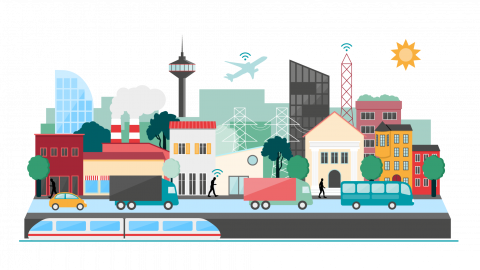Initially, I provided a brief introduction to the role of a Product Owner (PO) and described what is typically included in the job responsibilities and areas of accountability. Then, I delved into how you can handle user needs and requirements, followed by some concrete tips on how to effectively manage the product backlog. After that, I discussed how you, as a PO, can improve communication and collaboration with different types of stakeholders. I also talked a bit about how you can streamline ongoing work and listed some tips you can use. In the previous article, I delved into how you can measure team results and optimize product development. Now, I would like to tie it all together and discuss how you can develop as a leader in the role of a PO.

Continuous learning and continuous improvement
As a PO, it is important to constantly strive to get better, and therefore, I recommend that you continuously develop yourself and learn more. Your experiences both in private life and in business become valuable lessons that you can carry with you. However, remember to document different situations, the actions you took, and the results achieved, as it can help provide structure to your experiences. In addition to your own experiences, learn from others!
Regardless of the organization you work in, there is likely someone you look up to and admire. Ideally, there is already a structured method for utilizing managers and other leaders as mentors. However, even if there isn't, it's wise to approach these individuals and seek their help, advice, and support, as they have different or more experience than you.
There are also more traditional ways to learn and benefit from documented expertise out there, such as courses, workshops, conferences, books, articles, blogs, videos, and more.
Just remember to be prepared to learn and actively listen/read/watch when you do. Simply watching a YouTube video might work if you're watching cute kittens doing funny things, but it's not as effective when you're watching a video about developing as a leader.
Listen actively and create a clear vision
I have written about in previous articles, actively listening with empathy is incredibly important. As a PO, you act as the link between the team and stakeholders, so effective communication is crucial. I won't dwell on this again, but I still want to include this heading because it is such an important point that many take for granted.
If you spend some time truly thinking about this and take in what I have written about active listening in previous articles, you will soon notice a drastic difference. Give it a try!
The better you understand the needs of team members and stakeholders, the better you can prioritize and shape the product's development.
As you become better at understanding everyone's needs, it also becomes much easier to create a clear vision for the product that everyone can agree on and understand. This creates engagement and understanding among all involved. Even if everyone might not agree on everything, it still fosters a better work environment when everyone knows what needs to be done AND why.
At the same time, it's important to consider agility and flexibility, so that you don't get fixated on a solution without taking into account changing circumstances or other factors that affect the product's vision.
Develop your communication skills as a leader
As a leader, you create and cultivate relationships. To succeed in that, you must master the challenging art of effective and clear communication. It may seem quite obvious since everyone communicates in different ways and has it ingrained in them, but the truth is that individuals who are truly skilled at it are quite rare. To summarize the previous points, good communication skills are characterized by:
- Listening actively and empathetically - Focus on listening and ask follow-up questions.
- Adapting your communication to the recipient - Different people have different ways of receiving and understanding information.
- Creating an open and trusting communication environment - Build trust and a forgiving, positive environment.
- Being clear and concise - Convey your message without getting tangled up in unnecessary rephrasing.
- Building and maintaining relationships - Invest time and energy into both building and maintaining relationships.
- Developing empathy - Try to put yourself in others' shoes and understand them better.
- Seeking feedback and evaluating - Actively ask for feedback and regularly evaluate yourself.
- Using various communication channels - Choose communication channels/tools based on the situation.

Be flexible and adaptable
A characteristic of many good leaders is their ability to adapt to new circumstances. By that, I don't mean you should constantly change your stance or always go with the flow. No, it's about adjusting to changing conditions.
Agile methods and product ownership require you to be flexible and adaptable in a fast-paced and ever-changing environment. Be prepared to change direction, handle transitions, and make quick decisions based on new information. Show openness to learn from mistakes and continuously improve your work.
Some things you do may not turn out exactly as you intended, but what's important is that you learn from the mistakes and actively seek feedback from others while reflecting on your own actions. It sounds quite straightforward in theory but is significantly more challenging in practice. But as usual, practice makes perfect.
By applying these tips and continuing to develop as a leader and as a PO, you can strengthen your skills, maximize the product's success, and create a positive and efficient work environment for your team. I wish you all the best and hope you achieve your goals in the future.



